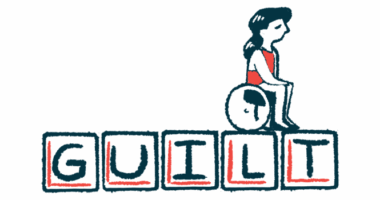Managing and adapting to shortages of clotting factor IX
Hemophilia B patients in the Philippines are having to ration their treatment

My husband, Jared, and I have written about the limited supply of clotting factor IX in the Philippines, where we live. Lately there’s been a greater shortage of that factor, which treats hemophilia B patients such as Jared.
That cast a shadow over our hemophilia community’s recent annual family day. During those events, members of our local hemophilia organization often look forward to the distribution of factor concentrates. This year, however, those with hemophilia B went home empty-handed, unlike their peers with hemophilia A, who got supplies of factor VIII.
The shortage’s effects on us
Naturally, the lack of supply hit Jared hard, posing a threat to his sense of security and desire for a normal life. The shortage has made him more mindful of activities that could lead to injuries and bleeds. Each incident now carries the sobering realization that the treatment isn’t as accessible as it used to be.
When our factor donations arrive, often from friends and relatives abroad, we approach the treatment with heightened caution. We meticulously assess the severity of each injury and calculate the necessary dose, akin to rationing food during a famine. Consequently, fear and anxiety intensify during critical moments. Each drop of factor becomes increasingly precious, and the pressure to use the medicine well becomes paramount.
Thus, his infusions have become increasingly challenging. We fear that each transfusion could be the last, amplifying the gravity of any mistakes and making waste a significant source of frustration and stress. As a result of this pressure, Jared’s ability to administer his treatment has been significantly hindered, undermining what had been his steadily growing confidence in self-treatment.
We’re holding on to hope
Despite these challenges, we cling to hope, believing relief may arrive soon in the form of humanitarian aid. We continue to hope for donations that will replenish the Philippines’ dwindling supply of factor IX.
At our recent family day for those with hemophilia, we witnessed the unwavering spirit of our members with type B. Driven by the determination to overcome their struggles, they showed up for the community despite knowing that factor IX wasn’t available yet.
This period of uncertainty highlights the vital importance of factor concentrates, fostering a deeper appreciation for the treatment and those who offer aid to alleviate our needs. It’s a reminder not to take this precious resource for granted. Moreover, the shortage calls for stronger advocacy for increased accessibility to this medicine and greater support for the mental health and security of those in the hemophilia community.
Note: Hemophilia News Today is strictly a news and information website about the disease. It does not provide medical advice, diagnosis, or treatment. This content is not intended to be a substitute for professional medical advice, diagnosis, or treatment. Always seek the advice of your physician or another qualified health provider with any questions you may have regarding a medical condition. Never disregard professional medical advice or delay in seeking it because of something you have read on this website. The opinions expressed in this column are not those of Hemophilia News Today or its parent company, Bionews, and are intended to spark discussion about issues pertaining to hemophilia.








Leave a comment
Fill in the required fields to post. Your email address will not be published.